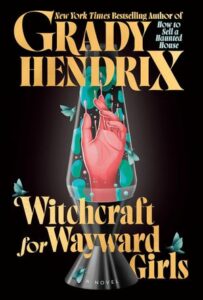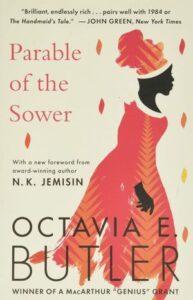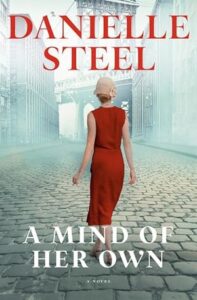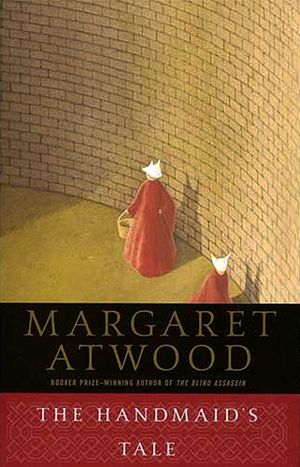Who is this book for?
- Readers who enjoy thought-provoking dystopian fiction.
- Feminists and those interested in women's rights issues.
- Fans of literary fiction with poetic prose.
- Those who like stories that spark discussion of social and political issues.
- Readers who appreciate complex female protagonists.
Who is unlikely to appreciate this book?
- Those who prefer fast-paced, action-driven plots.
- Readers who dislike ambiguous endings or unresolved storylines.
- People who are uncomfortable with dark, disturbing content.
- Those who struggle with non-linear narratives or unconventional writing styles.
- Readers looking for a more optimistic or uplifting story.
Things online reviewers enjoyed about this book
- Powerful and thought-provoking dystopian story
- Chilling portrayal of a totalitarian theocracy
- Explores themes of women's rights, reproductive freedom, and oppression
- Vivid and poetic prose style
- Complex and nuanced characters, especially the protagonist Offred
- Builds an immersive and believable dystopian world
- Serves as a cautionary tale about extremism and loss of rights
- Tackles important feminist issues
- Haunting and memorable imagery and scenes
- Sparks important discussions about gender, power, and politics
Things people didn't like as much about this book
- Some find the writing style and lack of quotation marks difficult to follow
- The dystopian premise requires suspension of disbelief for some readers
- Pacing can be slow at times with limited action
- Ambiguous ending frustrates some readers
- Depressing and disturbing content is emotionally draining
- Some feel it doesn't fully explain how the dystopian society came to be
- Portrayal of men is seen as one-dimensional by some
- Religious themes may be off-putting to some readers
- The narrative structure with flashbacks can be confusing
- Some find the protagonist passive or hard to connect with




